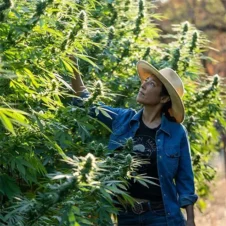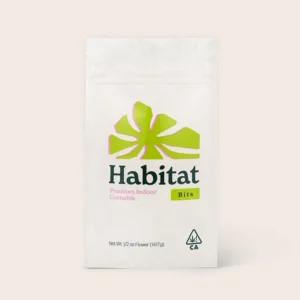Flower
Flower
Showing 1–16 of 102 resultsSorted by price: high to low
Showing 1–16 of 102 resultsSorted by price: high to low
-


Hawaiian Fanta 24g Cola

Hawaiian Fanta 24g Cola
Sativa | MyrceneTHC 20.6%$185 / 24g0 out of 5$185.00 Add to cart -


Cherry Dosidos 14g

Cherry Dosidos 14g
HybridTHC 25.74%$120 / 14g0 out of 5$120.00 Add to cart -


Blue Dream 14g
Ounce Deal (2x) - Save $20
Blue Dream 14g
Sativa | MyrceneTHC 21.02%$120 / 14g0 out of 5$120.00 Add to cart -


Sour Diesel 14g
Ounce Deal (2x) - Save $20
Sour Diesel 14g
Sativa | CaryophylleneTHC 18.7%$120 / 14g0 out of 5$120.00 Add to cart -


Atomic Belts 14g
Ounce Deal (2x) - Save $20
Atomic Belts 14g
Indica | CaryophylleneTHC 26.69%$110 / 14g0 out of 5$110.00 Add to cart -


Hotcakes 14g Smalls
Ounce Deal (2x) - Save $20Hotcakes 14g Smalls
IndicaTHC 27.64%$100 / 14g0 out of 5$100.00 Add to cart -


Banana Graffiti 14g
Ounce Deal (2x) - Save $20
Banana Graffiti 14g
Hybrid | TerpinoleneTHC 22.73%$100 / 14g0 out of 5$100.00 Add to cart -


Ronin OG 14g Smalls
Ounce Deal (2x) - Save $20Ronin OG 14g Smalls
Indica | LinaloolTHC 30.65%$100 / 14g0 out of 5$100.00 Add to cart -


Space Lemonade 14g Smalls
Ounce Deal (2x) - Save $20Space Lemonade 14g Smalls
Hybrid | LimoneneTHC 30.1%$100 / 14g0 out of 5$100.00 Add to cart -


Pink Runtz 14g Smalls
Ounce Deal (2x) - Save $20Pink Runtz 14g Smalls
Hybrid | LimoneneTHC 30.33%$100 / 14g0 out of 5$100.00 Add to cart -


Orange Valley Sun 14g
Ounce Deal (2x) - Save $20
Orange Valley Sun 14g
Sativa | CaryophylleneTHC 18.9%$100 / 14g0 out of 5$100.00 Add to cart -


Grapes And Cream 14g
Ounce Deal (2x) - Save $20 Out of Stock
Grapes And Cream 14g
Indica | CaryophylleneTHC 25.2%$100 / 14g0 out of 5$100.00 Read more -


Sweet Berry 14g
Ounce Deal (2x) - Save $20Sweet Berry 14g
Hybrid | CaryophylleneTHC 24.7%$80 / 14g0 out of 5$80.00 Add to cart -


Super Lemon Haze 14g
Ounce Deal (2x) - Save $20
Super Lemon Haze 14g
Sativa | TerpinoleneTHC 20.2%$80 / 14g0 out of 5$80.00 Add to cart -


Rs-11 14g
Ounce Deal (2x) - Save $20
Rs-11 14g
Hybrid | CaryophylleneTHC 25.7%$80 / 14g0 out of 5$80.00 Add to cart -


Mystic Lights 14g
Ounce Deal (2x) - Save $20Mystic Lights 14g
Hybrid | CaryophylleneTHC 20.8%$80 / 14g0 out of 5$80.00 Add to cart



